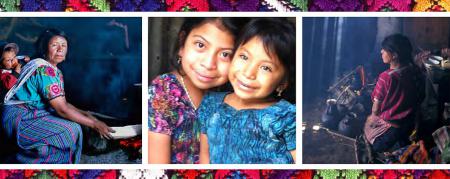
Scaling Up Demand for LPG in Guatemala: Motivators, Barriers and Opportunities
- Maryse Labriet, Omar Alfaro
-
Focus Areas
Chronic Disease Prevention, Global Health -
Issues
Climate Change -
Expertise
Health Education & Promotion -
Programs
Cleaner Cookstoves: Building Global Capacity & Improving Public Health

In Guatemala, about 70% of urban households use Liquefied Petroleum Gas (LPG) for cooking. Over half of these users continue to cook with firewood. Households will only enjoy the health benefits of LPG when it is the primary fuel for cooking.
Understanding LPG users’ preferences and experiences with LPG for cooking is critical for broadening LPG use among urban and periurban households. Created by PHI’s Cleaner Cookstoves: Building Global Capacity & Improving Public Health program and Eneris Consulting, the goal of the study is to facilitate LPG scale-up among Guatemalan households with easy access to LPG. To reach this goal, the study pursues two objectives:
- Identify key motivators for LPG use among urban and peri-urban households already using LPG.
- Explore ways corporate and institutional programs can facilitate LPG adoption and scale-up among employees.
The work was based on primary and secondary research: national statistics, individual meetings with national stakeholders and focus groups.
Download the executive summary and full report.
Main findings:
- The key barriers to a complete transition to LPG for urban and peri-urban households are concerns about safety and the poor quality of LPG cylinders; the reputation of LPG suppliers and distributors; lack of knowledge of how to cook with LPG or how to use a pressure cooker; and lack of easy cost comparisons between LPG and firewood.
- LPG is used in households with a wide range of incomes. Taste of food cooked with LPG, technical access to LPG refills and the initial cost of LPG cylinders and stoves are not barriers to increased LPG use.
- Four interventions are proposed, some of which are relevant for corporate and institutional programs: consumer information and marketing; facilitation of stove and cylinder purchase; regulation and review of LPG cylinders; and industry and government engagement.
Originally published by Eneris & PHI
Work With Us
You change the world. We do the rest. Explore fiscal sponsorship at PHI.
Support Us
Together, we can accelerate our response to public health’s most critical issues.
Find Employment
Begin your career at the Public Health Institute.


